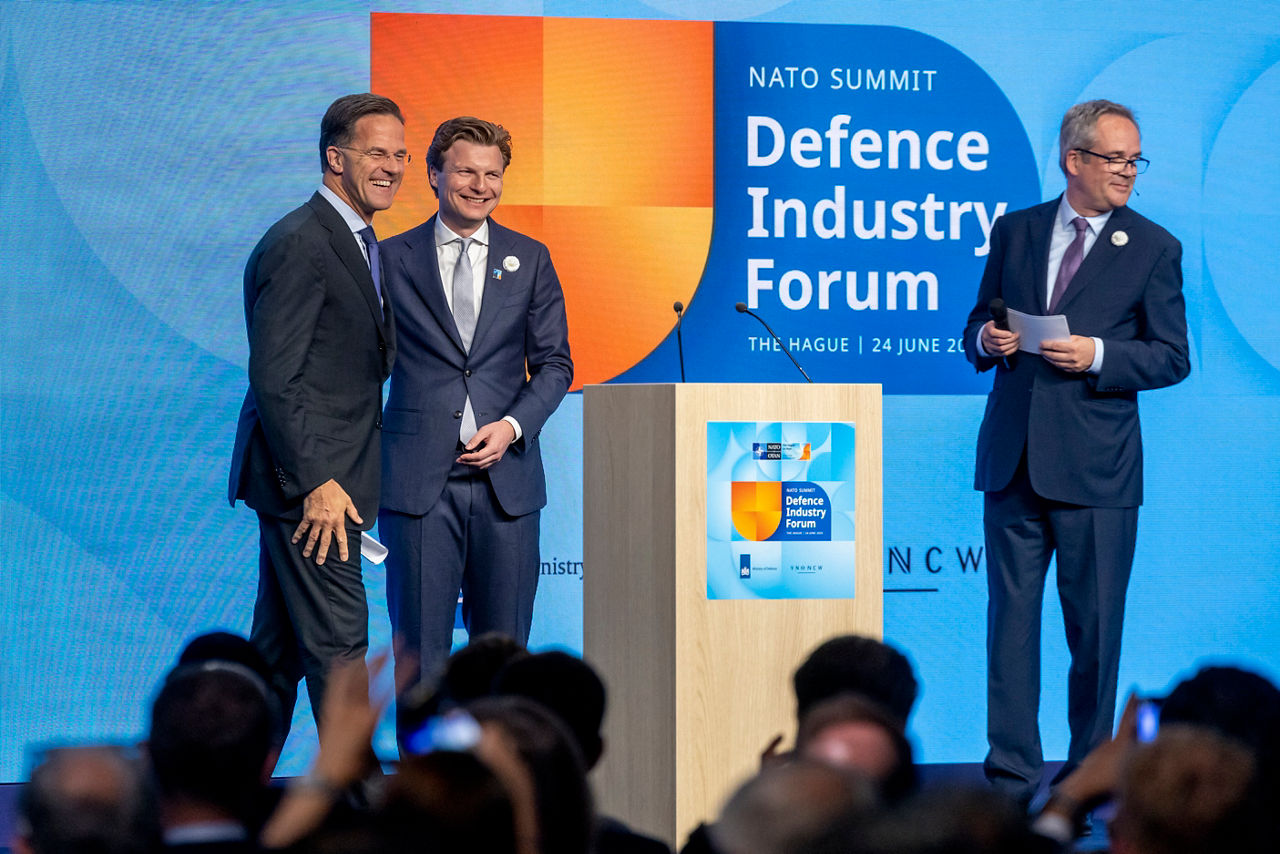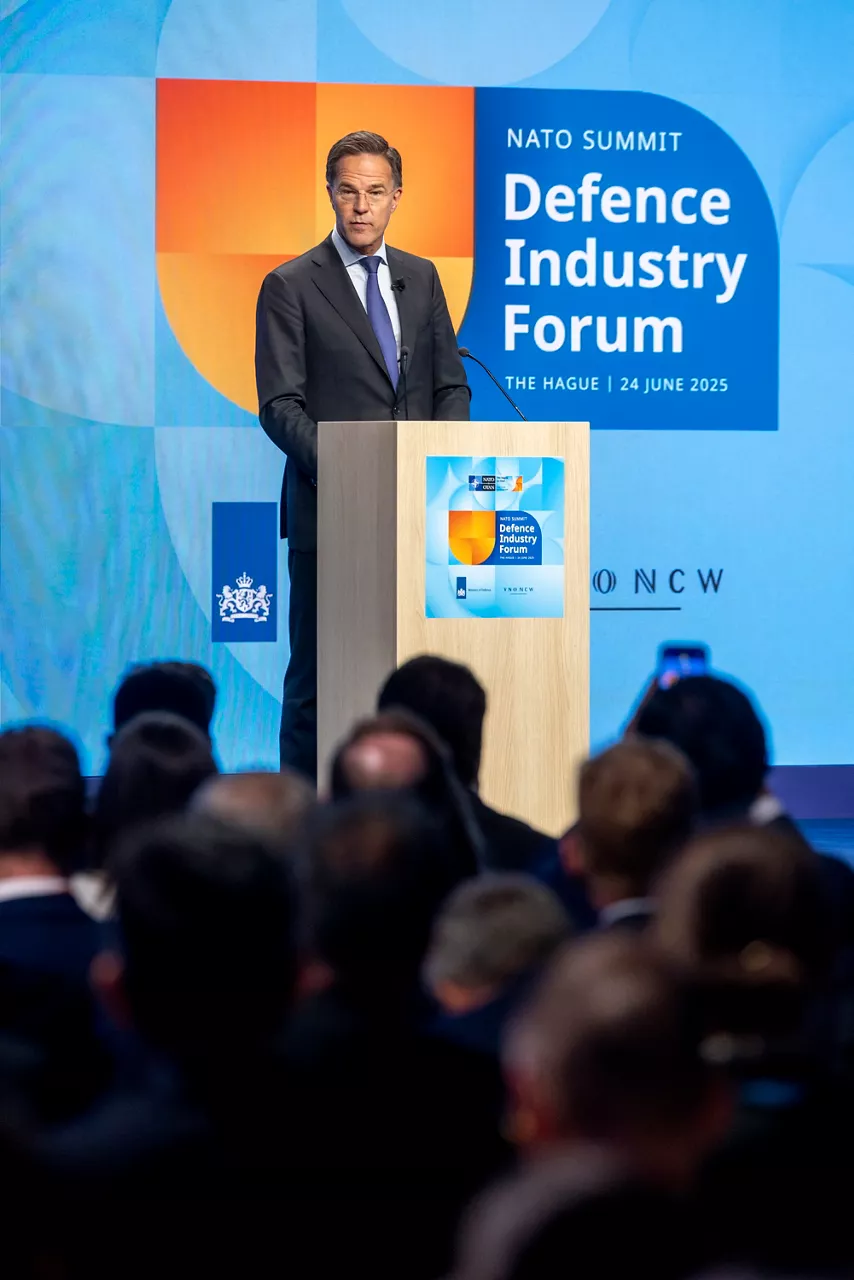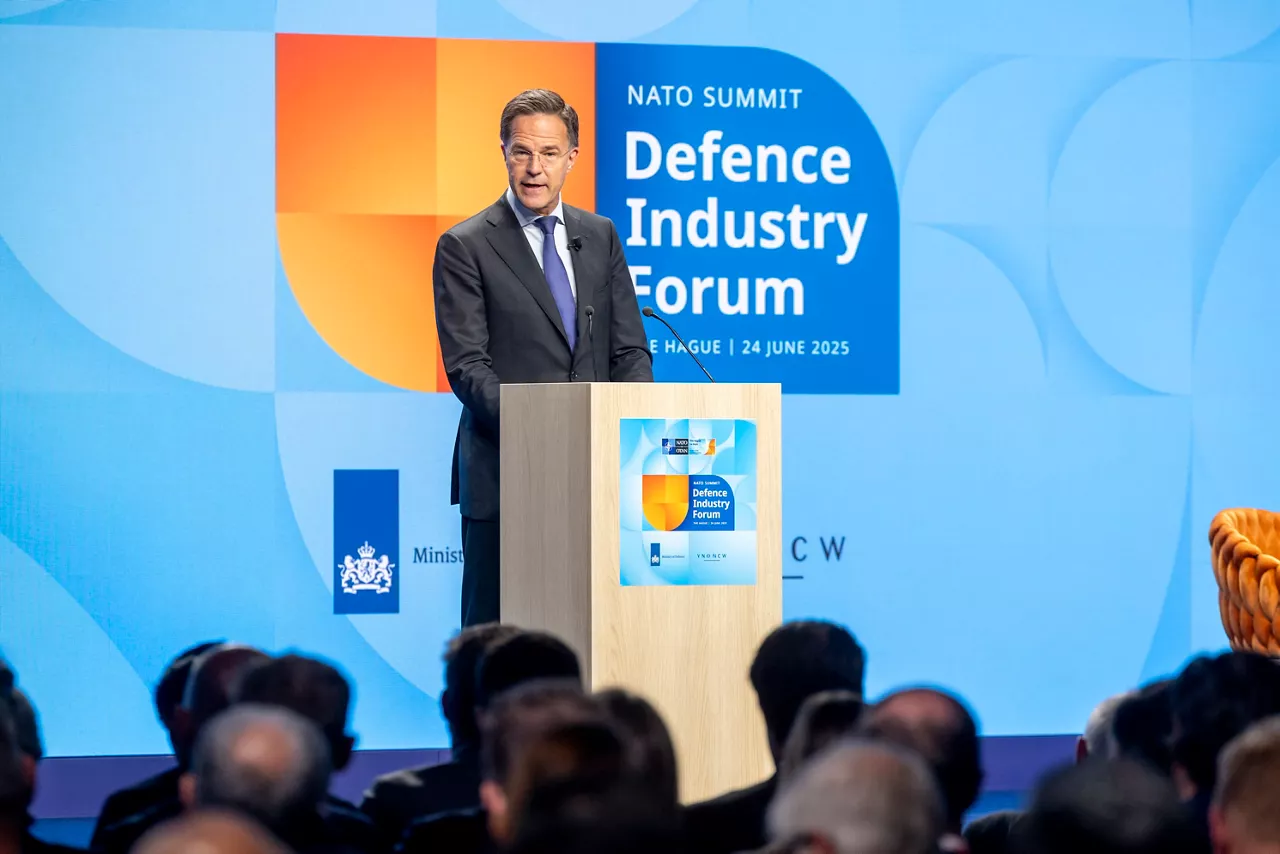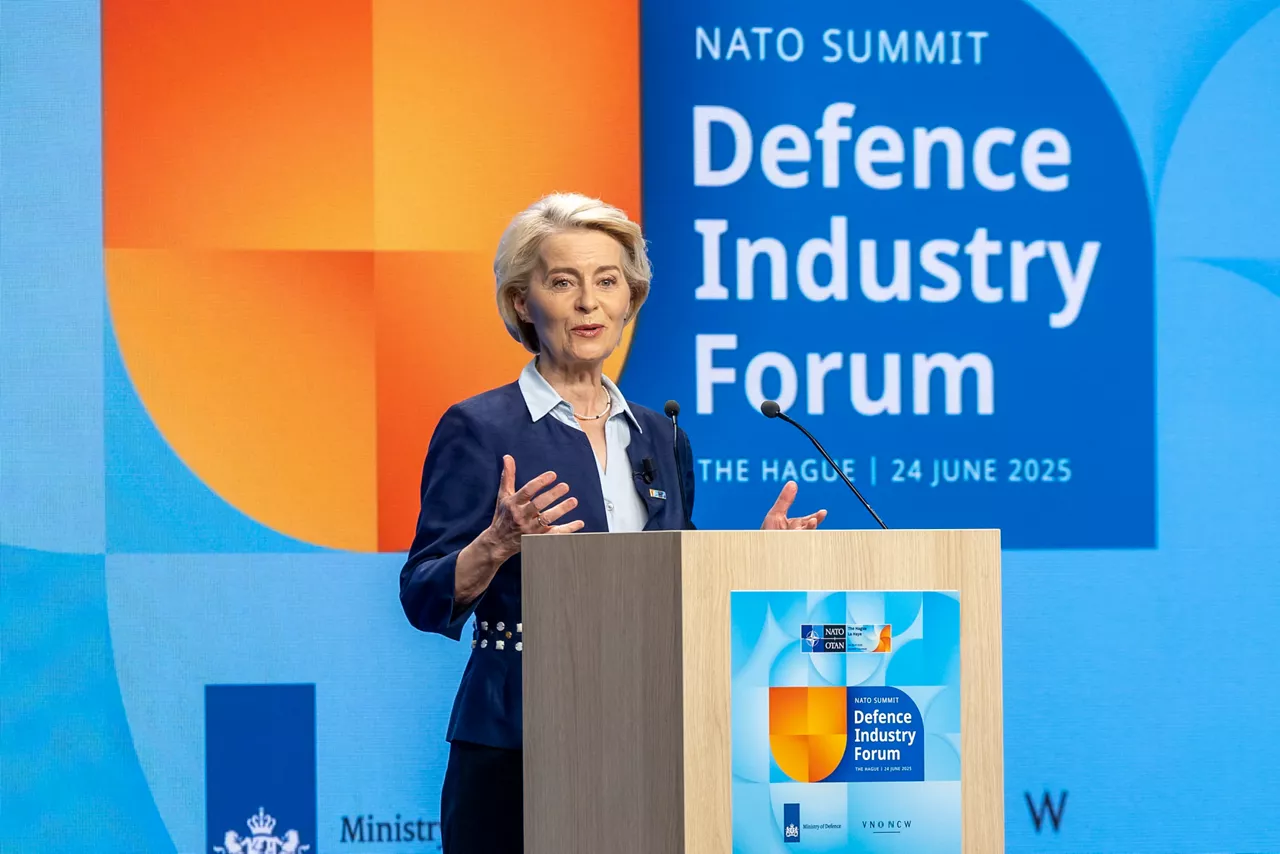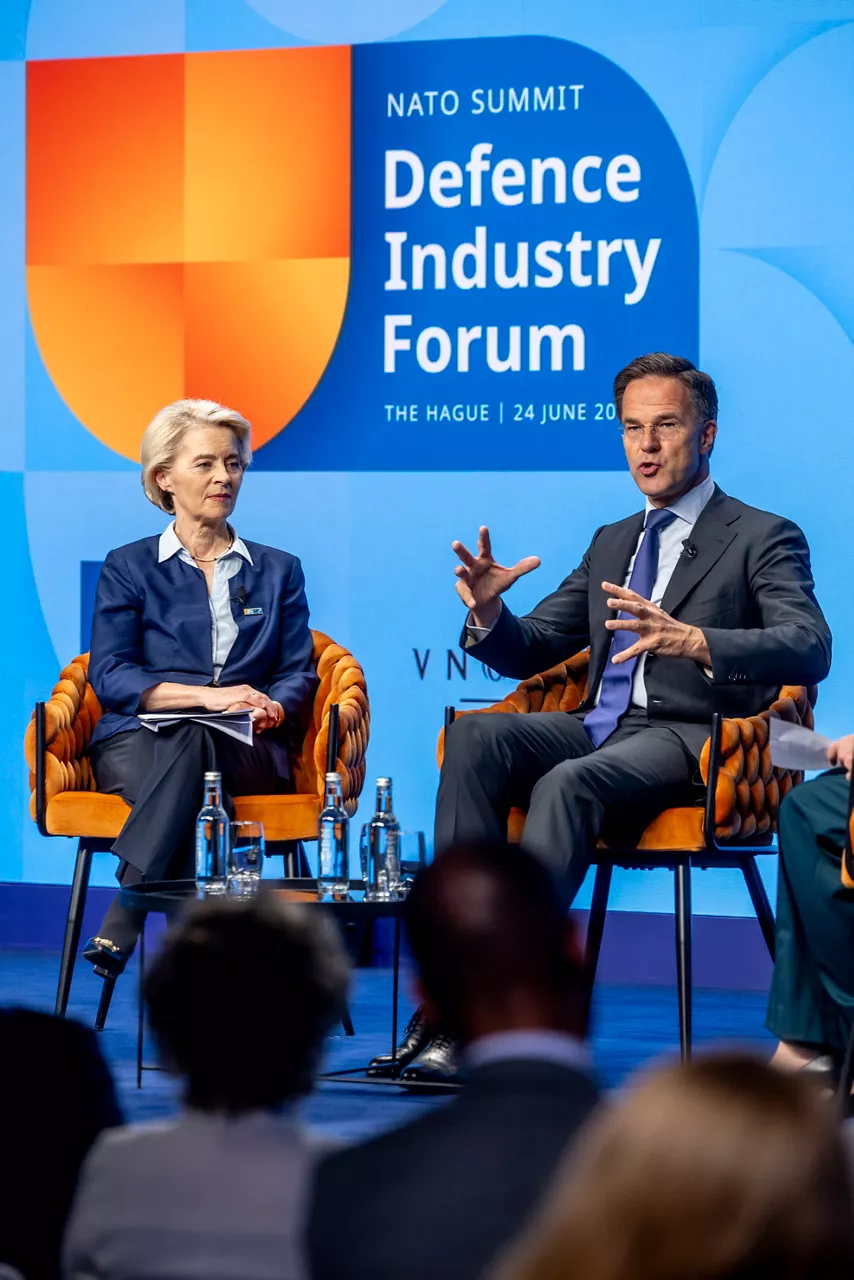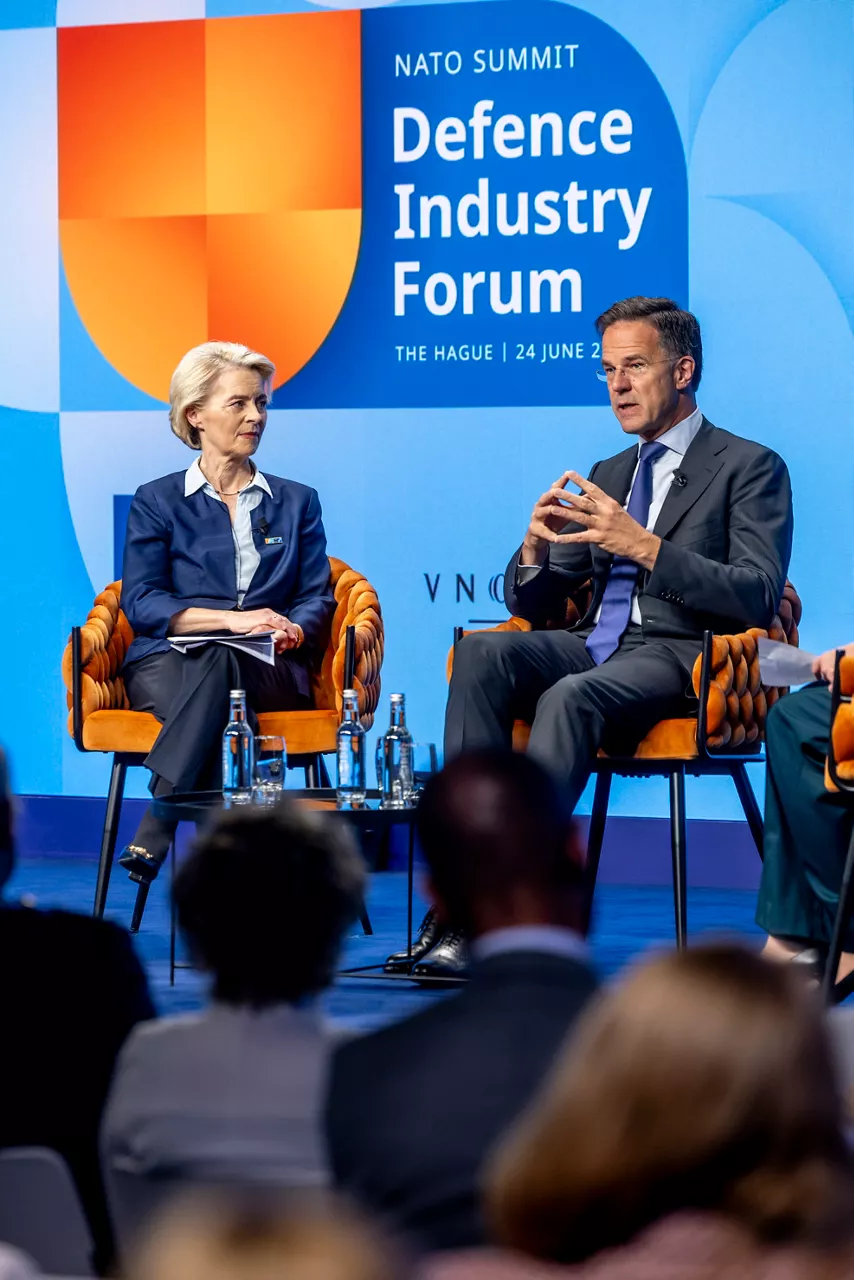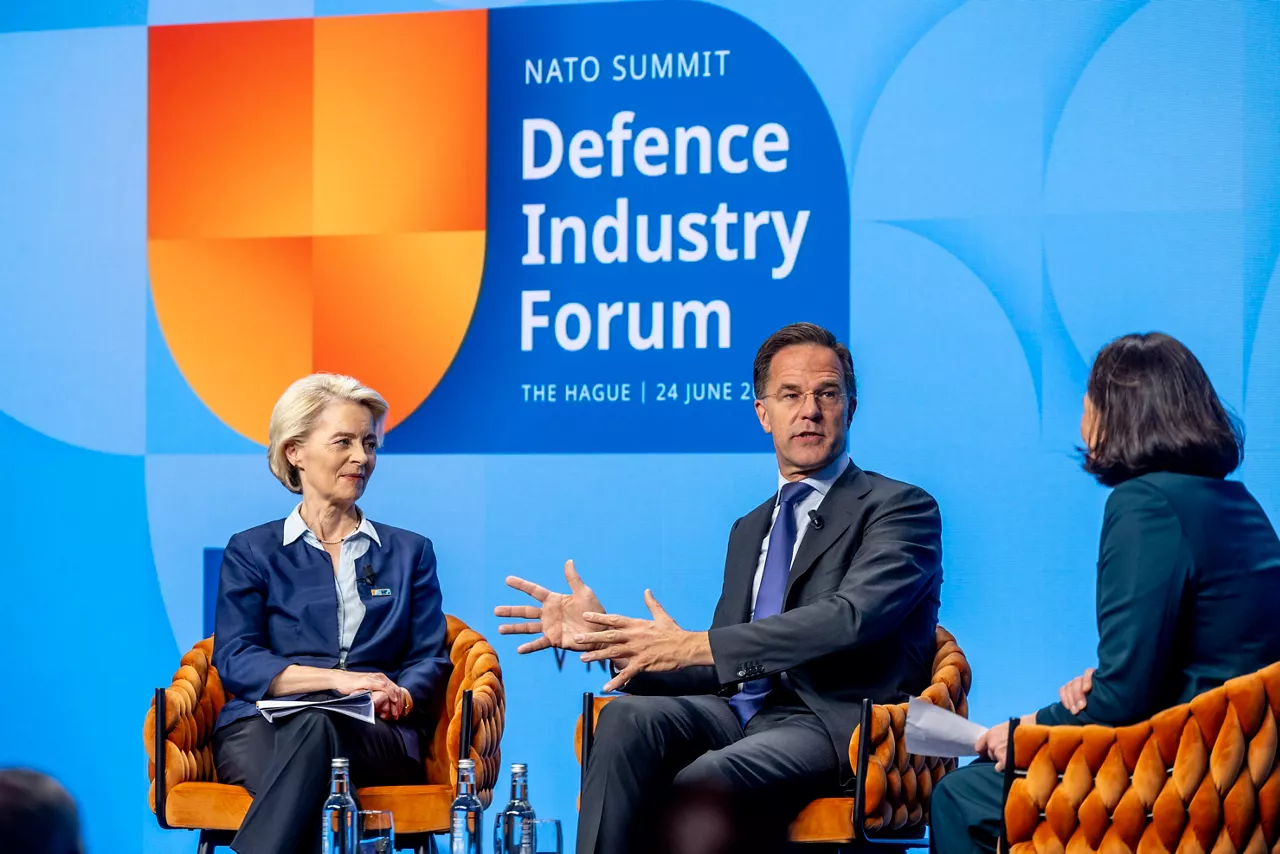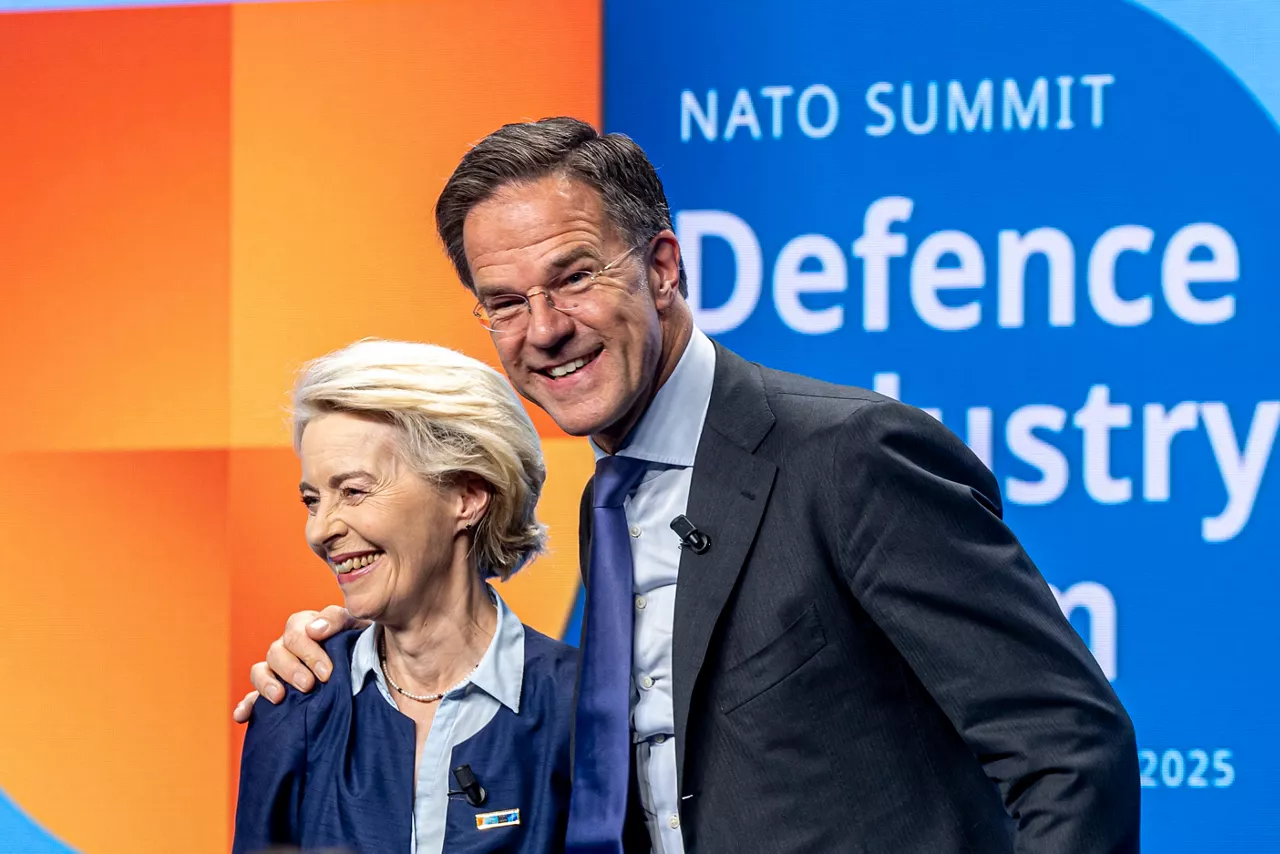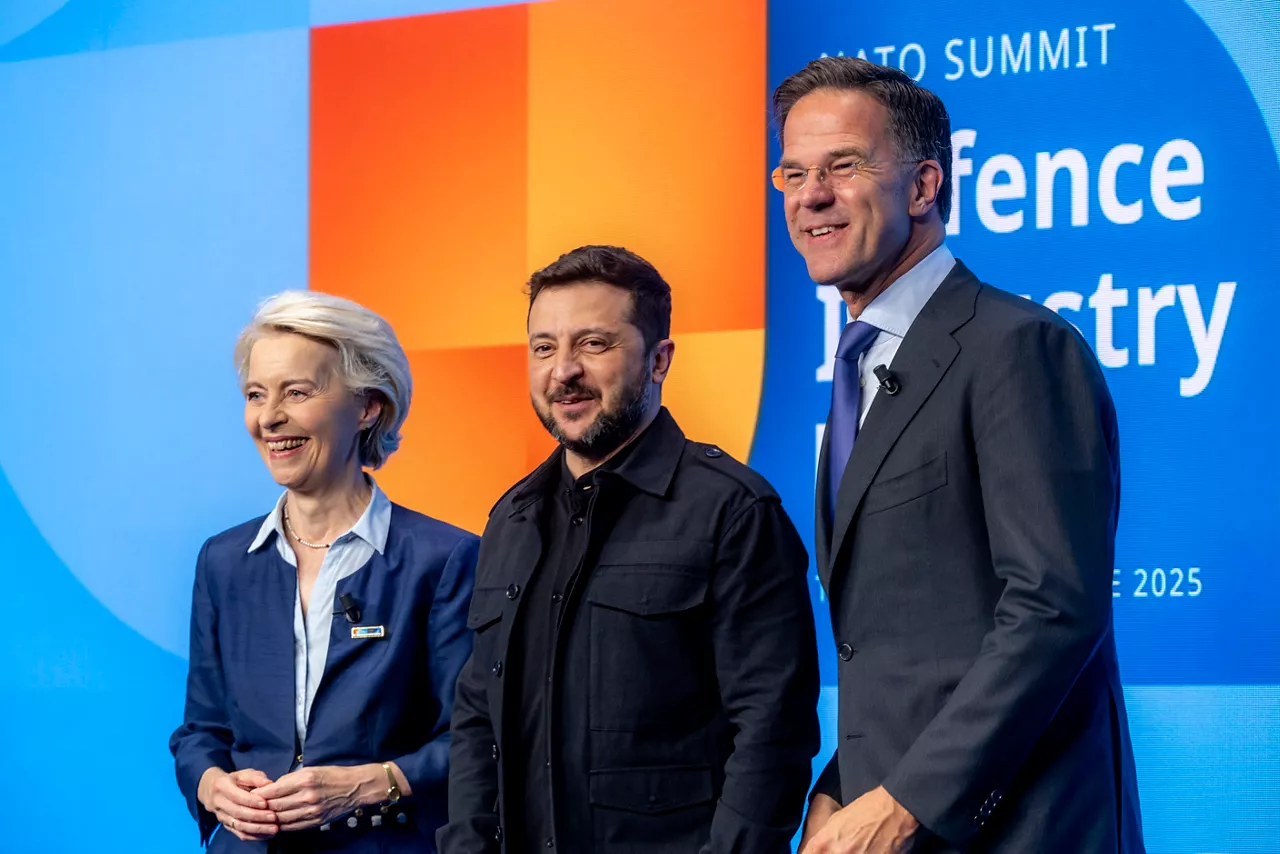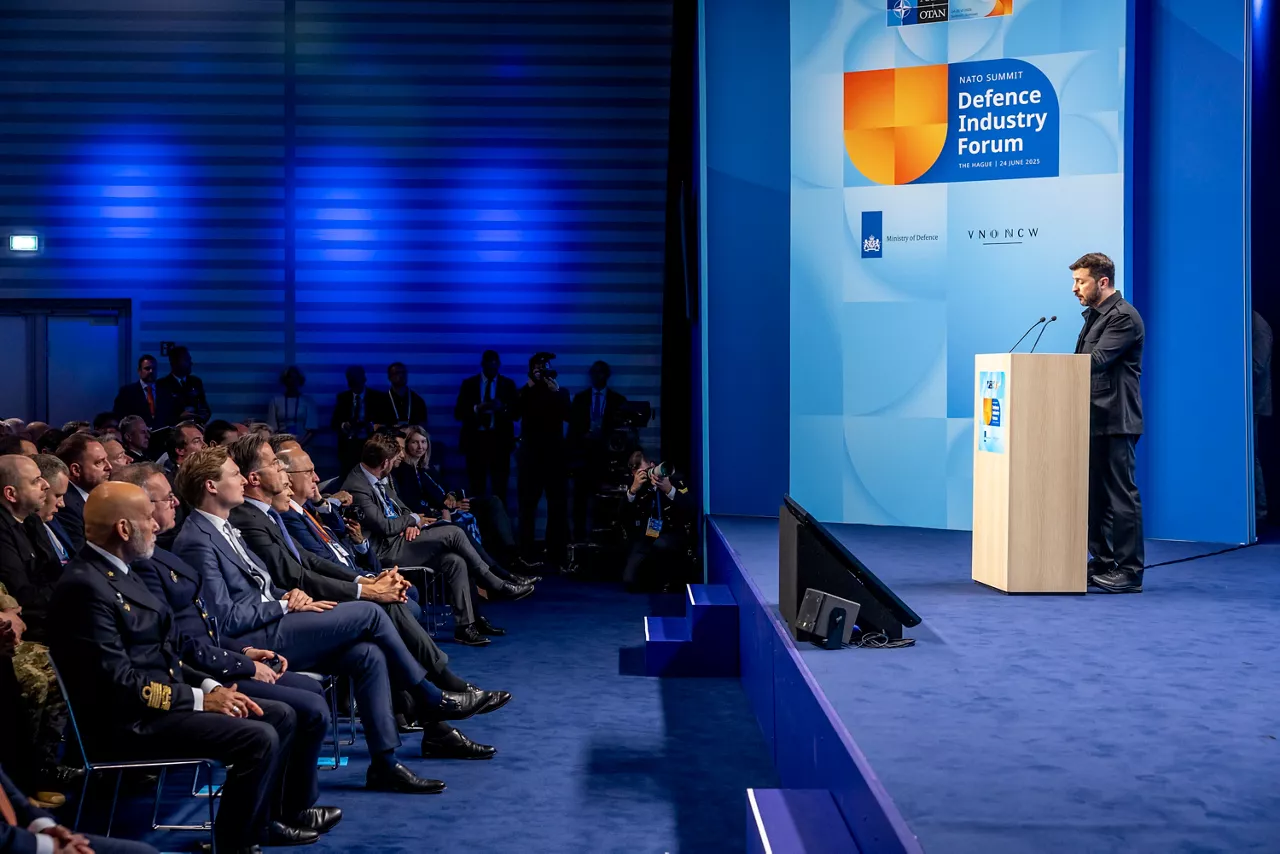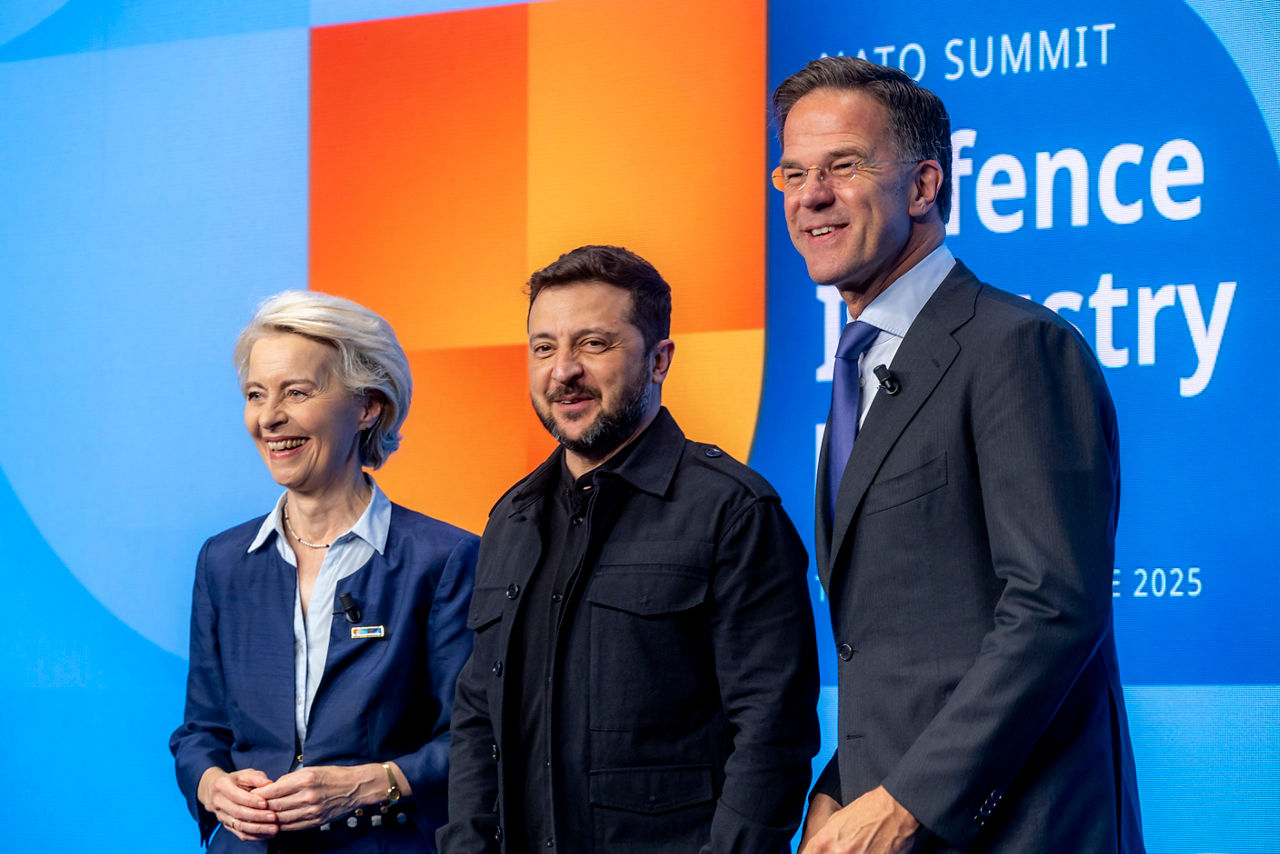Download NATO’s broadcast-quality video content free of charge

Log in
NATO MULTIMEDIA ACCOUNT
Access NATO’s broadcast-quality video content free of charge

Check your inbox and enter verification code
You have successfully created your account
From now on you can download videos from our website
Subscribe to our newsletter
If you would also like to subscribe to the newsletter and receive our latest updates, click on the button below.
Enter the email address you registered with and we will send you a code to reset your password.
Didn't receive a code? Send new Code
The password must be at least 12 characters long, no spaces, include upper/lowercase letters, numbers and symbols.
Your password has been updated
Click the button to return to the page you were on and log in with your new password.
(As delivered)
Thank you for that special moment, Ingrid. And thank you for those inspiring words, Minister Brekelmans, dear Ruben.
And thank you to everybody involved in organising this important forum, at the Dutch Ministries of Defence and Foreign Affairs, the Confederation of Netherlands Industry and Employers, and of course my wonderful colleagues at NATO.
It is also a pleasure, as always, to be here with my good friend, Ursula von der Leyen.
There’s an ancient Roman saying, “if you want peace, prepare for war.”
It’s a simple idea. Make your defences so strong, that no one dares to attack you.
Today, NATO’s military edge is being aggressively challenged.
By a rapidly rearming Russia.
Backed by Chinese technology.
And armed with Iranian and North Korean weapons.
We need to unite, innovate and deliver.
That’s exactly what this forum is all about.
Across the Alliance, we have opened hundreds of new production lines and expanded existing ones.
We are now on course to produce more ships, planes and ammunition than we have done in decades.
And NATO is using its unique power to drive demand,
increase cooperation, and enhance innovation.
Just moments ago, we brought Allies together to sign another set of important multinational projects.
This includes establishing NATO innovation ranges, to better integrate technology into our armed forces.
And another project to secure the supply chain of defence critical raw materials.
We also agreed to expand our multinational multi-role air tanker transport fleet, as you mentioned Minister Brekelmans, dear Ruben.
This is a brilliant example of NATO working together with the European Union. To deliver world-class air-to-air refuelling, transport, and medical evacuation capabilities.
When it comes to our partners,
I am delighted that we are also joined by our friends from the Indo-Pacific and Ukraine.
The source of so much of today’s innovation and cutting-edge capabilities.
And I welcome the fact, dear Ursula, that Europe is really stepping up.
The Readiness 2030 plan promises to unleash up to 800 billion euros for defence.
There’s no defence without a strong defence industry.
And there’s no European security without a strong transatlantic bond.
So we need to bring down barriers and encourage truly transatlantic defence cooperation.
Only Europe and North America together can rise up and meet the challenge.
And this includes working with Ukraine. An industrial and innovation powerhouse.
And let me welcome the news out of London yesterday, of a massive British investment in Ukraine’s defence industry.
Plugging Ukraine’s drone producers directly into the British industrial base.
This is all great, but we need to do more, we need to do it better, and together.
And we need to do it now.
It’s simply unthinkable that Russia,
with an economy 25 times smaller than NATO’s,
should be able to outproduce and outgun us.
We must spend more, to prevent war.
We must win this new war of production.
That’s what this Summit is all about.
Allies have agreed an unprecedented uplift in our capability targets.
We know exactly what forces, resources and capabilities each Ally needs to provide.
This will require a quantum leap in our collective defence.
But I know that when there’s a will,
our world-class industries and entrepreneurs will find a way.
This will also take bold decisions from our political leaders.
And that’s what we will do at the Summit tomorrow.
With an ambitious new Defence Investment Plan to spend
5 percent of GDP for defence.
This will mean a huge defence dividend.
An engine of growth for our economies.
Driving millions of jobs, on both sides of the Atlantic.
NATO’s leaders are about to take an historic step to provide the resources necessary for strong defence.
Now it’s up to industry to deliver, to deliver, and yes, to deliver.
So let’s get to work. Thank you so much.
Monika Sie Dhian Ho, Clingendael Institute General Director
So we know the why and we have stressed, you have stressed the importance of NATO-EU cooperation for years. How have the organisations stepped up this cooperation more recently?
Mark Rutte, NATO Secretary General
Well, of course, for NATO, the EU is our essential partner. There's no doubt. And when I came into this office in October, one of the first things I did was get the phone and call the President of the European Commission, Ursula von der Leyen and we had lunch, and basically, we said, we have to make sure that this works, because there's always, there are risks. Let's be honest. The EU is an organisation based on unanimity, in many cases. NATO is completely based on unanimity. So, you need the 27 in EU, the 32 in NATO to come to agreements. And this is not always easy. And then sometimes that creeps into the relations between the officials of both organisations. We said that will never happen. If there is a problem emerging, then we will get the phone and we will only hang up when we have solved this. And even a comfort break is not on the cards. So that has not happened so far.
And why is this important? For all the reasons Ursula was mentioning here. And let me just add the European Union has this huge soft power of bringing together countries and industries, building, that they're helping to build a defence industrial base. NATO, of course, focusing very much on the hard stuff of capabilities and standardisation. And this is a total fit. And the good thing is, with you at the helm of the Commission, with Andrius in the Commission, with Kaja Kallas, with António Costa, we have people now in the senior leadership in the EU who all have a background to understand why this important. Next to me is sitting the former Defence Minister of Germany. So, I mean, you don't have to explain to her why this is important.
Mark Rutte, NATO Secretary General
Can I add one thing what this President of the Commission is doing. One of her first visits was to Türkiye. You were able to come to a new deal with the United Kingdom. You were investing in relationships with Norway, of course, with the United States. You and the President of United States know each other very well. And that all helps, because the EU is 23 of the 32 NATO Allies. Nine NATO Allies are outside the European Union. But the fact that this President of the Commission is investing in all those relations makes it also easier for me internally to get this done and therefore make use of that combination of power.
Monika Sie Dhian Ho, Clingendael Institute General Director
And Mr Secretary General, what main barriers do you see, and how could the organisations cooperate to optimise?
Mark Rutte, NATO Secretary General
Yeah, what I've learned over the years is NATO and the EU are difficult beasts, because you have unanimity, you have many different points of view. So perfection is not to be achieved, because for perfection, you need too much time, and nothing will happen in the meantime. So I think what we are doing now is working together in the spirit of keeping speed. The better not being the enemy of good. And when it comes, for example, to developing this whole issue of the defence industrial base, and within that, the issue of innovation. The fact that we have this experience between EUFOR and KFOR in the Western Balkans. So we know how NATO and the EU can closely work together.
The same is now the case in Kyiv. We're really working very closely together, almost as one team, where we have the command in Wiesbaden, of course, also working for Ukraine, we have our team in Ukraine, we have the EU team in Ukraine. And what we try to do is to make sure that this is all working as one, and having not too many official stuff going on, and Mr so and so on, Excellency this... Keep it practical, keep it going. And know that perfection will never be there, because you will always have Allies in NATO or member states in the EU who will try to slow it down a bit. But then you have to make sure that you work on the 80%, 90% of the countries to really want to speed up, spend your time there, that's much more efficient than spend all your time on the one or two laggards.

